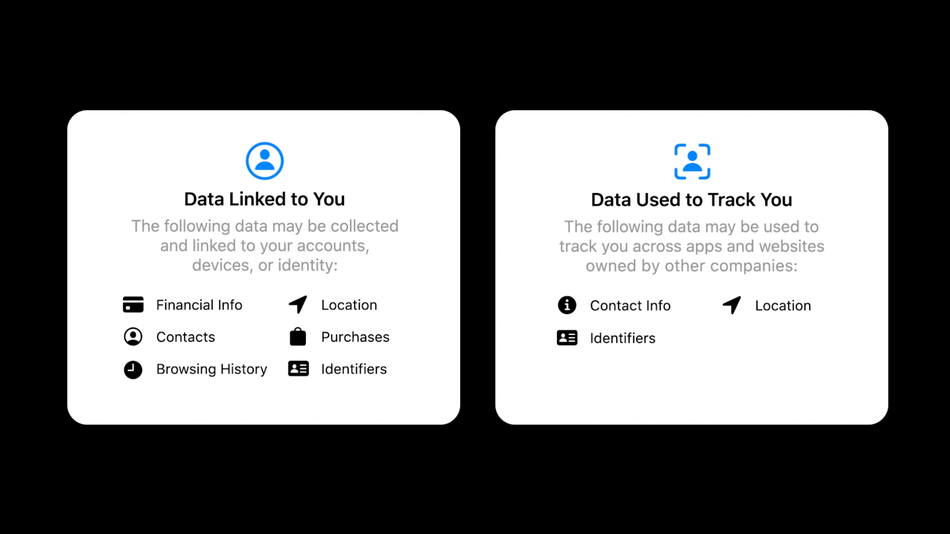Technology
What Facebook, Twitter, Snap, Google think of iOS14 privacy updates

Changes are underway on iOS, and not everybody is happy about it.
Apple’s iOS 14 contains privacy updates affecting apps that rely on user data to make money. While the changes first began rolling out in iOS 14, they’re becoming mandatory in upcoming versions.
The new requirements, called App Tracking Transparency, mandates that apps ask for permission to track user behavior. iPhone users can accept or deny this permission on an app-by-app basis, or rescind it entirely in their settings. It also requires apps in the App Store to disclose what sort of data the apps “link” to you and collect about you; Apple calls these disclosures “nutrition labels.”
The move is part of Apple’s campaign to position itself as a privacy-oriented company, which has rustled the feathers of other companies trying to claim that title for themselves.
Apple’s nutrition labels in iOS 14 are a a boon for privacy, but a thorn in the side of advertisers.

Most notably, Facebook has been engaging in a PR war with Apple about the change. Facebook *also* likes to say it really cares about privacy, but Apple’s labels show just how much data Facebook accrues on its users. The change threatens Facebook’s advertising product because it could limit the company’s ability to collect the mountains of data it uses to target ads.
While Facebook has been vocally opposed to the change, it’s far from the only company affected. Over the past few weeks, Apple’s big tech buddies have been releasing their yearly financial reports, which include executives’ opinions on what the next year holds for their money-making prospects. Executives weighed in on what the privacy updates mean for their bottom line, with responses ranging from righteous outrage to a big fat “meh.” Here’s what the companies had to say.
Mark Zuckerberg delivered some publicity punches related to Apple’s business, claiming the nutrition labels and permissions were about cementing Apple’s market dominance in messaging, while also hurting small businesses that “will no longer be able to reach their customers with targeted ads.”
However, Facebook CFO David Wehner got down to what iOS 14 actually means for Facebook.
“We’re going to have to be providing a prompt asking people for permission to use third-party data to deliver personalized ads,” Wehner said. “We do expect there to be high opt out rates related to that, and that’s factored into our outlook.”
Snap
Snap execs said they expected the change to negatively impact the company’s ads business, presenting a “risk of interruption to demand” by advertisers. However, CEO Evan Spiegel was pretty much down with it anyway.
“When it comes to some of the policy changes that Apple is making, you know, we really think of them as high integrity folks and we’re happy to see them making the right decision for their customers,” Spiegel said.
Twitter claimed that everything would be pretty much gravy with its ad business in the coming year. That’s despite the “modest impact” the iOS changes could have.
“Assuming the global pandemic continues to improve and that we see modest impact from the rollout of changes associated with iOS 14, we expect total revenue to grow faster than expenses in 2021,” Twitter’s shareholder letter read.
Google was mum on how Apple’s iOS changes would affect its tracking and advertising abilities. In response to a question about “some of the changing industry dynamics around privacy” (*cough* Apple) and what investors could expect “about the potential impact on ad revenues broadly as a result of privacy changes,” execs spoke more generally, and pivoted to focusing on Google’s recent move to replace third party cookies with its own product.
“We know that expectations are really changing for how data is used online. And people are demanding greater privacy,” Philipp Schindler, Google SVP and Chief Budget Officer, said. “We remain very committed to our collaboration with the ads community on privacy-preserving open standard mechanisms that can, what we call, sustain a healthy and ad-supported web.”
However, Google notably did not mention that it, too, is considering changes similar to (but reportedly less extreme than) Apple’s. Nor did it bring up the fact that it has conspicuously not updated its iOS apps, an update that some speculate Google is delaying since it requires Google apps like Gmail or YouTube to lay bare how much data they collect.
-

 Entertainment6 days ago
Entertainment6 days agoWhat’s new to streaming this week? (Jan. 17, 2025)
-

 Entertainment6 days ago
Entertainment6 days agoExplainer: Age-verification bills for porn and social media
-

 Entertainment5 days ago
Entertainment5 days agoIf TikTok is banned in the U.S., this is what it will look like for everyone else
-

 Entertainment5 days ago
Entertainment5 days ago‘Night Call’ review: A bad day on the job makes for a superb action movie
-

 Entertainment5 days ago
Entertainment5 days agoHow ‘Grand Theft Hamlet’ evolved from lockdown escape to Shakespearean success
-

 Entertainment5 days ago
Entertainment5 days ago‘September 5’ review: a blinkered, noncommittal thriller about an Olympic hostage crisis
-

 Entertainment5 days ago
Entertainment5 days ago‘Back in Action’ review: Cameron Diaz and Jamie Foxx team up for Gen X action-comedy
-

 Entertainment5 days ago
Entertainment5 days ago‘One of Them Days’ review: Keke Palmer and SZA are friendship goals
















